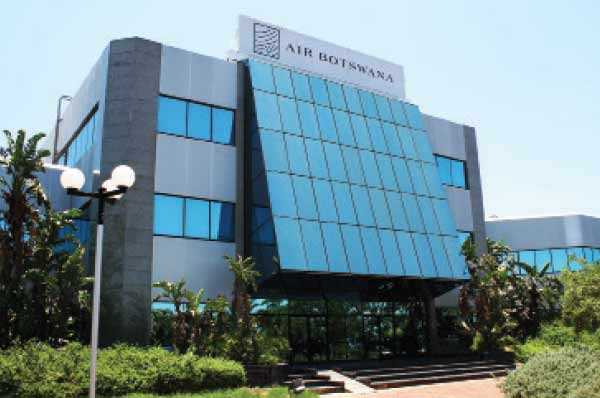PEEPA calls for privatisation of Air Botswana
Public Enterprises Evaluation and Privatisation Agency (PEEPA) Chief Executive Officer has called for a revisit of the decision to privatise Air Botswana.
In an exclusive interview with Botswana Guardian this week, from his office, Kgotla Ramaphane indicated that the environment in the aviation sector globally was not conducive at the time of deferring the decision to privatise the airline. “As we are established to implement privatisation-it would be better to study the environment again, find models suitable for it and bring it for privatisation,” he said.
Air Botswana has been making losses for several years, and there have been various attempts to privatise it and frequent changes to the corporation’s management and board, so far without reducing the losses. Blaming the losses in part on overstaffing, the operation of an ageing, fuel-inefficient fleet, increasing operational costs, inadequate management expertise and an inability to retain and attract qualified pilots - the government earmarked Air Botswana to be the first of the parastatals to be privatised.
The privatisation process began in April 2000, when the government signed a consultancy agreement with World Bank-affiliated International Finance Corporation (IFC), which saw IFC being appointed as the government’s main adviser in the privatisation process.
In 2003 the government attempted to privatise the airline, with Air Mauritius and Comair put forward as strategic partners. The process would have seen the winning bidder receiving a 45 percent stake in Air Botswana, with the government holding a further 45 percent, and employees holding the remaining 10 percent. It was planned that once the airline has firmed its position under new ownership, it would be listed on the Botswana Stock Exchange. Air Mauritius later withdrew from the process in September 2003, citing the downturn in global air travel markets since the 11 September 2001 terrorist attacks in New York City. Comair also withdrew in December 2003, due in part to increased competition by low-cost airlines in the South African market. The government then suspended the search for a strategic partner in February 2004.
In September 2006 it was announced that three potential investors had placed bids for the tender to take over the airline: Airlink of South Africa, African World Airways Ltd, and Lobtrans (Ltd), a local truck fuel transporter. Shortlisted companies which did not submit bids included Ethiopian Airlines, Comair, Tourism Empowerment Group, ExecuJet, and Interair South Africa. In November 2006, PEEPA announced that Airlink has been put forward by the Ministry of Works and Transport (now Ministry of Transport and Communications) as the preferred bidder for Air Botswana.
The government ceased negotiations with Airlink in October 2007, when cabinet decided that the deal was no longer viable. Cabinet also believed the proposal didn’t meet requirements for air transport for the country, and didn’t address government objectives for the further development of transport and tourism sectors in Botswana.
The government then began the search for a management company to operate the company for a three-year period, and also announced that the government would recapitalise the airline by injecting P100 million to improve performance and to make it more attractive for privatisation. The government entered into negotiations with Comair, but following disagreements over terms, negotiations continued with reserve bidder International Development Ireland, in conjunction with Aer Arann.
According to press reports in August 2008, Alexander Lebedev, a Russian oligarch, expressed interest in investing in the airline, and the Ministry of Works and Transport confirmed that Lebedev was invited to travel to Gaborone to present his bid to the government. Part of the bid reportedly included extending Air Botswana’s route network to Düsseldorf Airport; the base of Blue Wings which is 48 percent owned by Lebedev’s National Reserve Corporation. At the end of 2008, it was reported that Lebedev had abandoned plans for investment in Air Botswana.
In another development, the national airline left the International Air Transport Association (IATA) because of its inability to meet the December 2008 deadline of the IATA Operational Safety Audit. It was then re-admitted as a full member in 2012, under the leadership of the General Manager, Sakhile Nyoni-Reiling.
In December 2012 Nyoni-Reiling resigned and in May 2013 the local press reported of internal conflicts and that two directors had been suspended for gross mismanagement pending investigations. In 2014, the Zimbabwean national Ben Dawah was appointed the new General Manager for Air Botswana. In late 2015 Tshenolo Mabeo the minister responsible for transport, sacked Dahwa together with his entire board of directors, following allegations of corruption. General Tebogo Carter Masire, former Botswana Defence Force (BDF) Commander, was appointed in February 2016 to lead Air Botswana as board chairman, replacing Nigel Dixon-Warren.






